oct 18, 2022
Unmesh Srivastava
Unmesh Srivastava is the Chief Technology and Chief Digital Innovation Officer of Clever Care Health Plan. Previously, Unmesh worked with multiple organizations in leadership positions building healthcare solutions improving patient experience quality, and reducing cost of care.
One Line Life Lessons from Unmesh
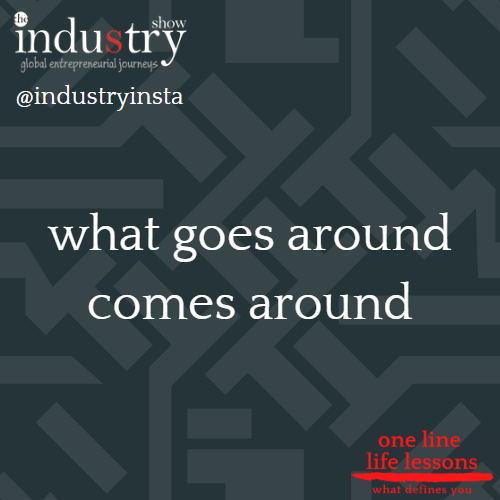
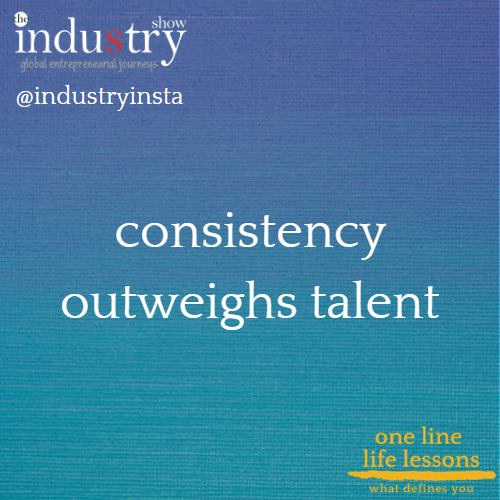
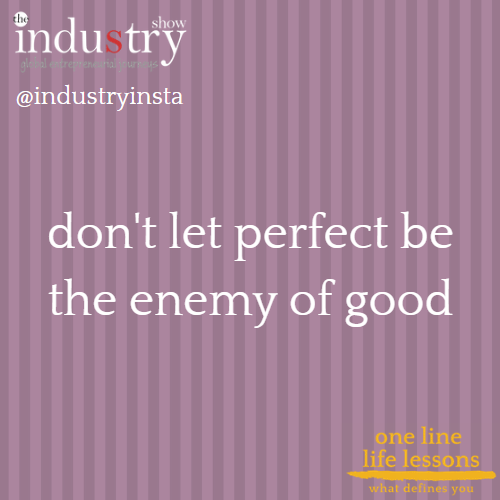
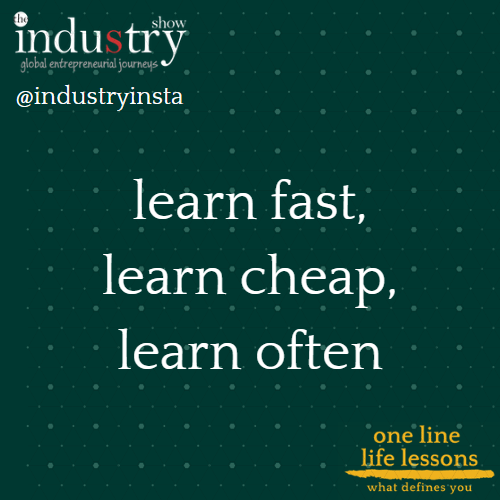
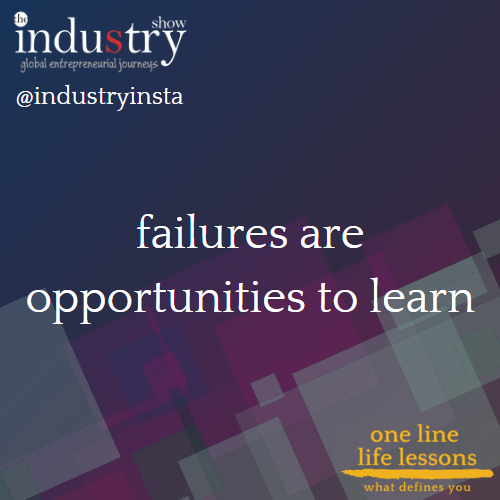
Episode Highlights
- (0:00:00) – Unmesh Srivastava is a health technology leader
- (0:00:51) – Clever Care Health Plan is a startup Medicare Advantage health plan built for seniors
- (0:04:42) – Building a healthcare system from benefits that is culturally sensitive is challenging
- (0:05:57) – On the flip side of challenges come opportunities. So which is the biggest one and the most exciting one for you
- (0:07:01) – What’s the total market size know? Every year there is, I forget how many
- (0:08:23) – You see failures as successes or as learning opportunities in healthcare
- (0:10:22) – Unmesh shares some of his favorite one line life lessons on our show
Show Transcript
Transcript - Full Episode
Nitin Bajaj: (0:00:00) – Hey everyone, welcome to the industry show. I’m your host, Nitin Bajaj. And joining me today is Unmesh Srivastava. Unmesh, welcome on the show.
Unmesh Srivastava: (0:00:09) – Thank you, Nitin. Glad to be here.
Nitin Bajaj: (0:00:12) – Glad to have you here. So let’s start with who is Unmesh?
Unmesh Srivastava: (0:00:16) – Well, Unmesh, as a person on the professional side, I’m a health technology leader who’s trying very hard on improving the lives of seniors in us through healthcare. I’m a first generation immigrant to us, so hustle and empathy are both part of my DNA and I consider both of those as my superpowers as a leader. So in very short two sentences, that’s how I’m going to define myself.
Nitin Bajaj: (0:00:51) – Well, let’s talk more about what is Clever Care Health plan and give us a sense of the size and scale and more importantly, the impact that the organization has created.
Unmesh Srivastava: (0:01:04) – Absolutely. So Clever Care Health plan is a startup Medicare Advantage health plan built for seniors. And our consumers are seniors who do not speak English as their first language. So the way we approach healthcare is on our benefits side. We have combined eastern and western medicine, so we’ve got traditional western medicine benefits, but then we’ve amalgamated the gold standards of eastern medicine into our benefit packages on the preventative aspect. And then the way we deliver our care is through a network of physicians, through a network of member advocates who can speak in the language in which our members speak and also understand their culture fairly well. So if you think about us, we are a health insurance company which has carved a niche. Talk about health equity. We are solving health equity at our core, especially around language and culture barriers in terms of where we are at as an organization, we are a startup plan. This upcoming annual enrollment period will be our third annual enrollment period. We’ve grown 15 x year over year so far. Currently we have close to 7500 members who are part of clever care organization as the consumers who’ve signed up with us in terms of geographies and communities we serve. Right now we are in LA and Orange county, and in this upcoming year we are also going to move into inland Empire, up to San Diego and also in the northern California area. So San Francisco and Bay Area. In future, we see ourselves growing into other states where there are seniors who do not speak English as their first language. We are looking at New York, looking at Texas, trying to go in these geographies in the future.
Nitin Bajaj: (0:03:15) – So pretty big scale, amazing growth and a huge market potential. And I’ll still ask you, why do this?
Unmesh Srivastava: (0:03:27) – Well, we all talk about health equity. And people talk about it, but we are solving it at its core, if you think about it, America, to me, is a melting pot of the world. People from all over the world come here to build lives for themselves, to contribute to the economy, and so forth. But the way healthcare is delivered is only delivered for folks who speak in English and are western, come from western culture. Right. So I really see that a lot of people who do not speak in English or come from disparate cultures have a disadvantage in accessing their care. And I think it’s the need of the hour where everything else in the world is so consumerized. Right? Amazon understands what your choices are, what your needs are. So does Uber, so does Zomato and other sites you use. Why not healthcare? So we are building healthcare, which is sort of more personalized from a culture, language, and ethnicity perspective.
Nitin Bajaj: (0:04:38) – Makes sense as you think of it as a business. What is the biggest challenge you’re facing?
Unmesh Srivastava: (0:04:47) – Our mission statement is not easy to solve. For Nitin, building a healthcare system from benefits, from experience, from provider network perspective, which is culturally sensitive, is not easy. So I think that’s the challenge that we’ve taken on, a pretty big challenge to solve for at a scale at which we are solving it. And that’s quite challenging. But that’s also exciting, because no one else in the country is doing this, so why not us?
Nitin Bajaj: (0:05:16) – And when you say no one else is doing it, you’re primarily talking about people. Your first customer, your ideal customer, is someone who’s non english speaking.
Unmesh Srivastava: (0:05:26) – That’s right. And as an insurance carrier, I do not see anyone who’s catering to so many languages and cultures and has benefit packages like we have. They’re large organizations, right? UnitedHealthcare, Blue Cross, Blue shield, Humana, and so forth, who are insuring majority of the population in the states. But what we are doing is a little bit different than all the other insurance companies out there.
Nitin Bajaj: (0:05:56) – Agreed. And I think I know the answer to this, but I want to hear it from you. Is on the flip side of challenges come opportunities. So which is the biggest one and the most exciting one for you as a business?
Unmesh Srivastava: (0:06:09) – Well, the biggest opportunity is just the sheer market size of this. Right. What we are trying to solve for is something that is so unique and no one else is solving for it. And if we are able to do this right, the way we see our organization growing is we want to switch culture by culture and language by language and benefit by benefit. So if we do it right, we’ve got a game plan now to start providing care and to seniors who come from different cultures. Right now we have Koreans, Vietnamese, Cantonese speaking, Mandarin speaking folks who are part of our network. But as we expand these languages and these cultures are going to grow. So that’s a huge opportunity.
Nitin Bajaj: (0:07:01) – What’s the total market size know? Every year there is, I forget how many or even every day there is thousands of people that are becoming eligible for Medicare. How many of these do not have, not just English as a first language, but don’t have English as a language at all?
Unmesh Srivastava: (0:07:19) – That’s a great question and probably my CEO is going to best answer that. I’m not sure about the market size, but what we are seeing right now in the way we are growing, there is quite a bit of market for folks who do not speak in English. And part of this, I’ll tell you, is also our growth journey. Nitin, our AEP sign ups this year was around 3500 members. And through the ongoing enrollment period where we are not marketing actively and we are not doing things, we are getting people to come join us through the word of mouth. Word of mouth from seniors, from members, from providers, from brokers. So that tells us the market size is big, but definitely there’s a number there which probably I’m not aware of.
Nitin Bajaj: (0:08:11) – The word of mouth growth is the best kind of growth there is.
Unmesh Srivastava: (0:08:14) – That’s right.
Nitin Bajaj: (0:08:15) – That’s validation that you’re bringing value to them and they want to come in and they feel good about the services they’re getting. So as we look forward, let’s take a step back in your personal career or just even with clever care, what’s one big moment that was a huge success that went beyond your own expectations and then one that did not work out and ended up being a failure and you picked up some lessons from there?
Unmesh Srivastava: (0:08:48) – Well, that’s a pretty loaded question. I think anyone in healthcare, I don’t know if I have one moment which I can define as life changing. I personally feel every time we help a senior avoid a ER visit, an admission where we are able to provide access to care successfully to our seniors, are wins that we celebrate as a team at clever care. And in general, anyone working in this field of healthcare, in terms of failures, man, I’ve got so many. But how I see failures as in general is these are opportunities to learn. Yes, there are times where you will see failure, but if you on the hindsight see that you learned something from it and next time you’re going to learn and you’re going to do it much better, is really what helps you strive forward so I’m a very optimistic guy. I see failures as successes or as learning opportunities, and there are innumeraus of them in my career because I like building things. I like innovation. I like first generation companies. And a lot of times when you’re going to be building new things, you’re going to fail. You’re going to learn. But the idea is fail fast, fail cheap, fail often, or learn fast, learn cheap, learn often, and move.
Nitin Bajaj: (0:10:21) – Well said. So that brings us to my favorite part of the show. We call it the one line life lessons. And you started trickling into that, so that’s a good segue. So tell us a few of your one line life lessons.
Unmesh Srivastava: (0:10:37) – Yeah, a lot of one line life lessons. I think personally, what I practice at work is don’t let perfect be the enemy of good. A lot of times people strive for perfection and they don’t get started. So I personally feel that it’s always good to get things moving and slowly perfect them out over time. The other one is, I feel like consistency is sort of, it outweighs talent over a long course. So I was never like the smartest person in the room, but I’ve always been consistent. And I feel like if you are consistent at what you do, things align. And in the long run, life is not a sprint, it’s a journey. Right. And if you are consistently working hard, consistently trying to solve problems, things will get solved. I think the other thing, as an organization in the professional setting, I truly feel culture eats. I think culture eats strategy for breakfast is another thing I use with my team. You might have the best strategy, but if your people are, you’ve not brought in the people who, and you’ve not built a culture of success, the best strategies are, I’ve seen them falling because of that culture. So I think that’s big. The other one I’ve learned from my mother, and actually, it’s a pretty famous saying in India, what goes around comes around. Karma, I think, is super critical. So I believe that whatever actions you do in life, they’re going to come back to you. So make sure you help people. You do the best, you put the best foot forward, and then universe has its own way of aligning itself. Yeah, I mean, those are a few one liners. I’ve got quite a few of them, but these are the ones that come to mind.
Nitin Bajaj: (0:12:45) – Thanks, Unmesh, for sharing those. And for our audience, we have an entire collection which will include the ones Unmesh just shared with us@onelinelifelessons.com. And wherever you socialize digitally Unmesh thanks again for being with us today and sharing your journey with us. Kudos to you and congratulations to your entire team with the work you have done with the growth you’re seeing, and also the good luck to you with the work that you have ahead of you. Thanks again.
Unmesh Srivastava: (0:13:13) – Thank you.



